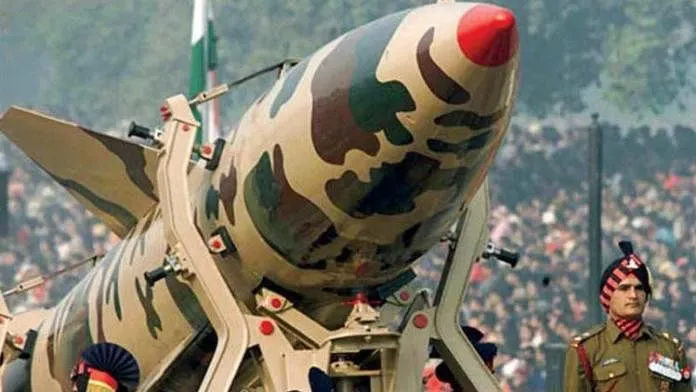This May will mark the 25th anniversary of the India’s nuclear weapons tests. Three devices were tested on May 11th and two more two days later. With these tests India proclaimed to the world that it had formally joined the group of countries that possessed nuclear weapons. With that action India also completely shattered the carefully built ‘legitimate’ global nuclear weapons possession system established through the Non-Proliferation of Nuclear Weapons Treaty (NPT).
In testing its nuclear weapons India did not violate the treaty for it was one of the few countries which had not signed the NPT. It considered it then, as it does now, as discriminatory. Hence, India undertook the tests for its security. This was made clear by Prime Minister Atal Bihari Vajpayee who announced to the world of his government’s actions. He also assured the world that India would conduct itself as a responsible nuclear power and that it considered nuclear weapons, as weapons of deterrence against existential threats and not weapons of war.
None of these assurances cut any ice with the countries ‘legitimately’ possessing nuclear weapons as sanctioned by the NPT nor their allies. The Indian action was severely condemned and sanctions were imposed by the US. The US lead in denouncing India was followed by its allies swiftly. But no country acted more crudely than Australia against India at that time. This writer was then serving at a middle level position in the Ministry of External Affairs and remembers well the indignation and indeed anger at how the Australians treated some Indian army officers who were attending courses in their country’s military establishments.
But that was then. Now Australia is with India in the Quad and is part of group of countries which are deeply concerned about China’s aggressive rise and assertive policies and actions in the Indo-Pacific region. India-Australia relations are growing strongly though have been occasional hiccups as there were some years ago because of the insensitive treatment of some Indian students studying in Australian institutions. As I write these lines the Australian Prime Minister Anthony Albanese is on a state visit to India and along with Prime Minister Narendra Modi was present at the beginning of the fourth cricket test match in Ahmedabad.
While announcing Albanese’s visit to India the Ministry of External Affairs (MEA)’s press release noted “India and Australia share warm and friendly relations based on common values and democratic principles. The Strategic Partnership between the two countries was elevated to a Comprehensive Strategic Partnership in June 2020 which has been strengthened and deepened through frequent high-level exchanges and enhanced cooperation across sectors. Prime Minister Albanese’s visit is expected to provide further momentum to the Comprehensive Strategic Partnership”.
Twenty-five years ago when the Australians behaved so obnoxiously with Indian officials the two countries were democracies too and hence shared “common values” and yet these did not make the Australians think twice of acting in an unbecoming manner. The inference which can be drawn is obvious. While countries stress terms like “cultural affinities”, “historical relations” “common values” “bonds of common faiths” their policies and actions in the inter-state relations are really never based on these aspects but are guided by their contemporary interests.
Even while bilateral ties between countries go up based on common interests memories of improper conduct in the past linger. This is because even when interests clash and relations turn cold what can be expected of all countries is that their treatment of officials and nationals of the adversarial or offending state will remain courteous and in keeping with globally accepted norms. If the countries concerned do not adhere to these basic tenets—as the Australians did not—then the memories of their conduct persist in the system of the targeted state. Relations may improve and get greater content as has happened between India and Australia but the insults get lodged in the crevices of the targeted state’s memory. As the dictum goes ‘injuries can be forgotten and forgiven but the insults rankle and are not easily forgotten or forgiven’. It is therefore always prudent for a state that has acted improperly to find ways to express regret for their past actions. The Australians need to consider if they have done so till now.
Naturally, a state which has felt insulted should not allow such insults or injuries to get in the way of achieving its interests. That is the wise way of going ahead. Hence, India did not allow the Australian actions to prevent the all-round growth in ties. There is growing content in them because as India’s manufacturing base increases it would need Australian raw materials. There are also possibilities for India-Australian cooperation in science and technology and in animal husbandry and agriculture too.
Apart from these bilateral areas the two countries have a vital interest in ensuring that the Indo-Pacific region remains free of Chinese domination. Under President Xi Jinping China is pushing the Indo-Pacific countries to look upon it as the hub of the region and themselves as spokes joined to the hub. China’s Belt and Road Initiative (BRI) is aimed at achieving this objective. India has rightly taken a very negative view on the BRI. It has shunned it but the Australian views on it are not on all fours with that of India even though it is deeply concerned about China’s policies and activities in the Indo-Pacific region. Indian policy makers need to be more energetic in explaining the dangers of the BRI to the region and the world.
Disclaimer: The views and opinions expressed in this article are the personal opinions of the author. The facts, analysis, assumptions and perspective appearing in the article do not reflect the views of GK.







